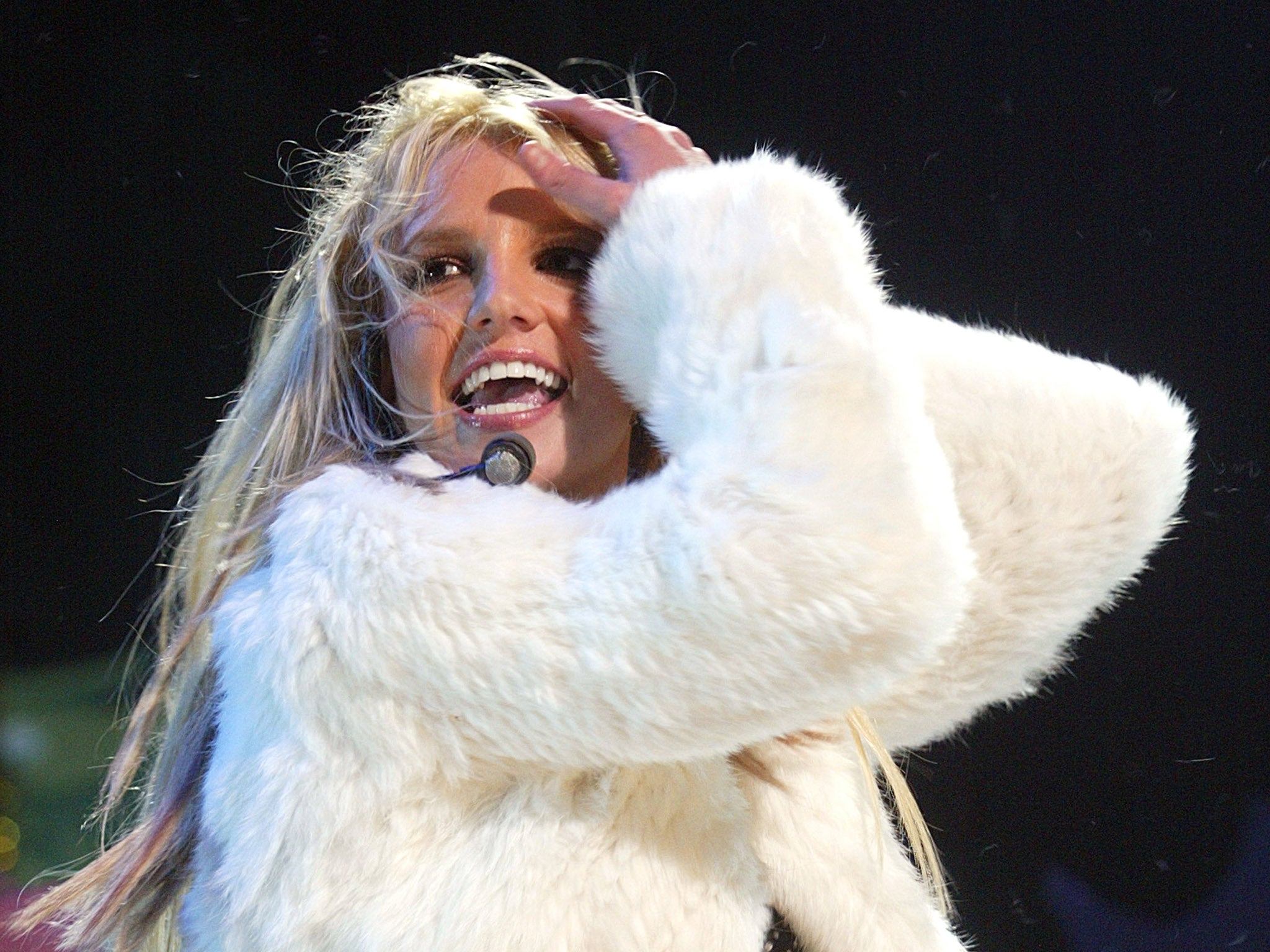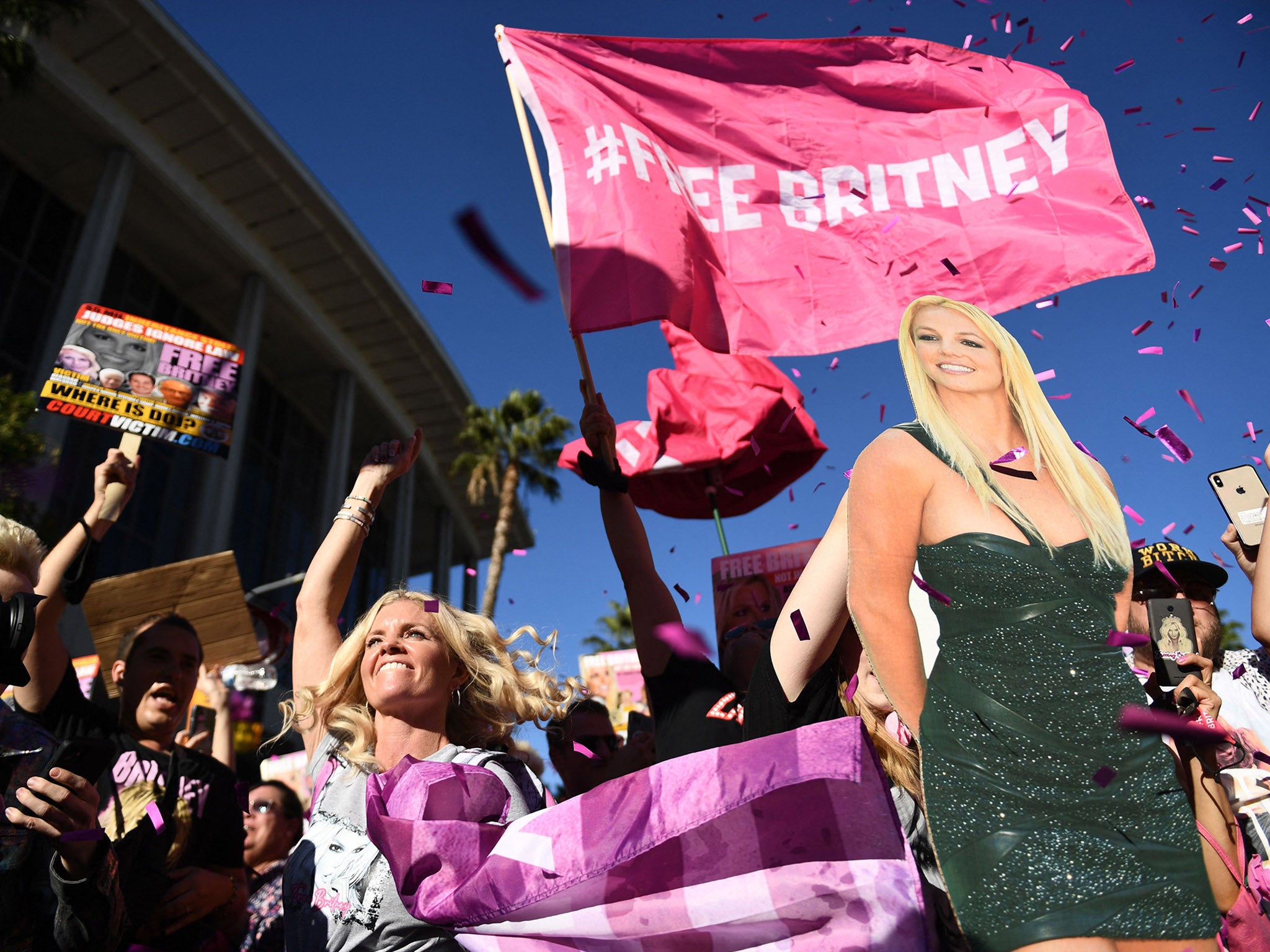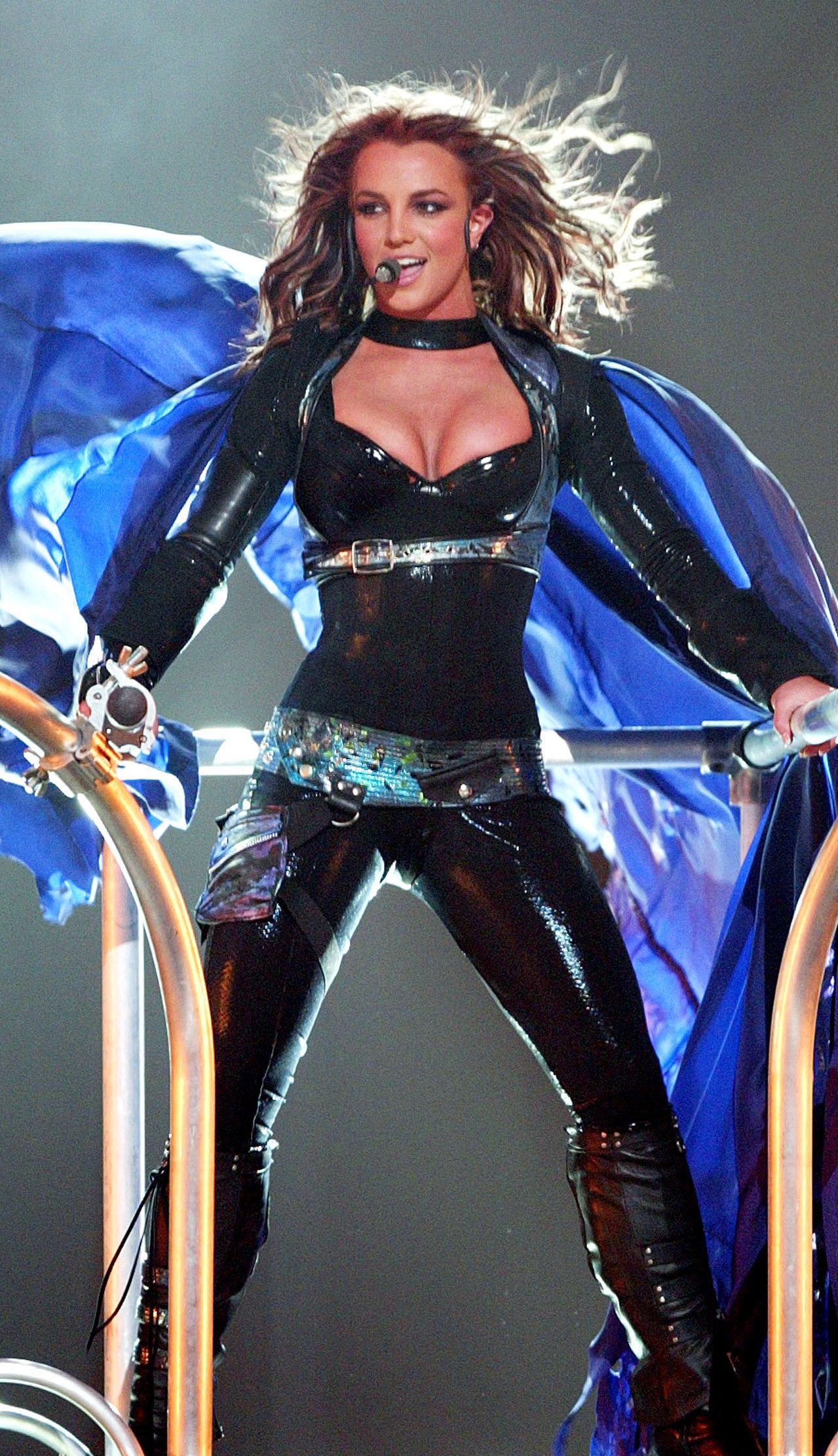When conspiracy theories come true: How fans got Britney her freedom
As the pop star enjoys her first weeks of freedom after 13 years under a conservatorship, Adam White recalls the year in Spears: from the #FreeBritney movement that kickstarted her legal victory, to the fans who never knew what to believe


Your support helps us to tell the story
From reproductive rights to climate change to Big Tech, The Independent is on the ground when the story is developing. Whether it's investigating the financials of Elon Musk's pro-Trump PAC or producing our latest documentary, 'The A Word', which shines a light on the American women fighting for reproductive rights, we know how important it is to parse out the facts from the messaging.
At such a critical moment in US history, we need reporters on the ground. Your donation allows us to keep sending journalists to speak to both sides of the story.
The Independent is trusted by Americans across the entire political spectrum. And unlike many other quality news outlets, we choose not to lock Americans out of our reporting and analysis with paywalls. We believe quality journalism should be available to everyone, paid for by those who can afford it.
Your support makes all the difference.In August 2018, Britney Spears arrived in London for her first touring show in the capital for seven years. She’d spent much of the intervening time in Las Vegas, where her concert residency, Piece of Me, had earned millions, and had now embarked on a world tour. Spears had become such a mirage by the time she brought the show to London, a shimmying, largely voiceless spectre haunting the Nevada desert, that the air in the O2 arena was thick with uncertainty. Would she sing a Bonnie Raitt song live, like she did that one night in Vegas? Or go off script and express thinly veiled swipes at… someone… like those handful of times during Piece of Me? Ultimately she did neither. She hit her marks, flipped her hair, and stomped back and forth. She didn’t say much at all.
In June 2021, amid a fight for freedom from the conservatorship she’d been under for 13 years, Spears told a Los Angeles court that she hadn’t wanted to go on that world tour at all. She claimed that she was forced into it by her management, and that they threatened to sue her if she refused. One night in Vegas, she recalled, she was handed a contract to sign, and she was scared. “Out of fear, I went ahead and did the tour.”
When I heard Spears’s words on that courtroom live stream, my mind immediately went back to the O2. Thousands had been crammed into the arena, singing along to hits and waving glow-sticks. Few of us asked the questions we probably should have been asking.
Spears is emerging from 2021 a changed woman, after being granted total control of her life and affairs by a judge in November. On a lesser scale, the year has also left Spears’s fans in a different space than how we entered it. We’ve been forced to re-contextualise a woman whose life, art and agency had been sold to us by third parties for more than a decade, her own voice muffled and censored.
Spears’s conservatorship was believed to be a temporary measure born out of necessity. In 2008, following a high-profile personal crisis that played out in front of the world’s paparazzi, Spears was placed by a California judge under the controversial legal arrangement. Despite their past estrangement, Spears’s father Jamie was granted total oversight of his daughter’s personal life and finances. Due to the apparent success of the conservatorship – Spears’s career and financial bottom line both recovered in the wake of its formation – it kept being extended, first lasting months rather than weeks, and then being made permanent.
In that time, Spears flourished professionally while fading from view. The few interviews she gave were micro-managed, journalists remarking on the maddening levels of bureaucracy that had to be wrestled with to even speak to her. She appeared nervous and skittish in public, and the benefits of the conservatorship became unclear. Her busy work schedule – albums, concerts, live television, endorsement deals – seemed to contradict an apparent health issue so grave that she couldn’t possibly be allowed to function on her own terms. If a legal conservatorship is designed to create a pathway back to an individual’s freedom, Spears’s pathway seemed to be made of quicksand.
A contingent of Spears’s fans smelt a rat. In early 2019, a podcast exploring the wacky chaos of Spears’s Instagram account played a voicemail recording by an alleged former member of Spears’s legal team. In it, the person claimed that Spears was being held against her will in a mental health facility, after she stopped taking her medication and refused to participate in a new Vegas residency. Fans began a movement called #FreeBritney, using in-person protest and social media hashtags to raise awareness of Spears’s alleged plight.

Spears herself remained silent, with the comments section of her Instagram transformed into a hub of compassion and conspiracies. It was sometimes unclear if Spears was actively trolling the concern over her welfare, posting videos answering banal questions – allegedly submitted by fans – such as: “What’s your favourite meal?” Fans became fixated on Spears’s clothing, speculating that she was sending coded messages in the colours she wore. Others commented with screaming abuse, convinced Spears wasn’t running the account and that her nervous swaying in videos wasn’t just anxiety – which she’s been open about – but a result of the star being imprisoned. Essentially, it got dark.
Now in a different, scarier context, everything related to Spears became loaded with unexpected gravity. As Spears got older – and her agency simultaneously slipped away – her lyrics took on a perverse subtext. “All you people look at me like I’m a little girl,” she was singing at concerts aged 35 and under her father’s legal control. “Every time I try to fly, I fall beneath my wings,” she pined. Hits like “Overprotected” and “Lucky” (“She’s so lucky, she’s a star / But she cry-cry-cries in her lonely heart”) became so on the nose that they stopped being performed live. “You better work, bitch,” Spears repeats over and over like a capitalist cyborg at the top of her eighth album. “Now get to work, bitch!”
Spears’s lyrics, contrasted with her increasingly boarded-up existence, came to be read less as general pop star angst and more the cries of a woman in genuine pain. Maybe. If you were a Britney fan between the years of 2008 and 2020, you got used to existing in such an endless in-between, where everything ambiguous had both an undramatic explanation and a conspiratorial one. Was Spears’s original video for 2016 single “Make Me” – in which she writhed around in a cage like a trapped animal – scrapped because it referenced how she felt about the conservatorship, or because it made no sense and Spears herself hated it? Was she barely a vocalist on her 2013 album Britney Jean – hauntingly dubbed her “most personal” work by her team despite her near total absence from its production – because it was a rush job to promote Vegas? Or because the record was a sinister test case for how much of a pop star is actually needed to make and sell an album?
We still don’t have the answers to those questions, and it’s unclear if we ever will. What we do know is that Spears was operating against her wishes through a good proportion of the last 13 years. In July, at a hearing in which she begged to be freed from her conservatorship, Spears finally broke her silence and confirmed many of the #FreeBritney movement’s worst fears.

In a 23-minute statement, Spears told a judge that under the conservatorship, she had been drugged, forced to work against her will and prevented from removing her birth control device. She added that she had been forced into a clinic and prescribed lithium after refusing to perform a specific dance move for an ultimately scrapped second Vegas residency, and wished to sue her family. Spears said that she had kept silent as she worried she would not be believed, and claimed that her former lawyers had never told her that she could petition for the conservatorship to end at any point. “I’ve lied and told the whole world I’m OK and I’m happy,” Spears said. “I’ve been in denial. I’ve been in shock. I am traumatised … But now I’m telling you the truth, OK? I’m not happy. I can’t sleep. I’m so angry it’s insane, and I’m depressed. I cry every day.”
In November, nearly 14 years after it was formed, Spears’s conservatorship was terminated. Her Instagram has since been an open-hearted, unguarded peek into Spears’s mindset – she complains about her family, from whom she seems to be estranged, cuddles with her boyfriend and boards private jets. She’s raised awareness for other victims of conservatorship abuse and posted inspirational quotes. In all its sweet, scrappy, someone’s-mum-on-Facebook disorderedness, it’s her.
The fame apparatus that propped up Spears – often at the expense of her well-being – also seems to be a dying one. Younger pop stars, from Lady Gaga and Billie Eilish to Lizzo and Ariana Grande, have been encouraged to speak openly about their difficulties in the spotlight and their struggles with mental health. They also seem to be surrounded by managers and label executives who understand the value of self-care and time off. You can only imagine how much easier the last 13 years of Spears’s life would have been if she’d been allowed to work at her own pace. Or – gasp! – not work at all.
For her fans, Spears’s next move will be absorbed differently. What she does may not look the same or sound the same, but it’ll at least be free of that nagging sense of uncertainty that seemed to trail her mid-conservatorship. And which more than a few of us chose to ignore. Whatever her choice, it will finally be her own. It’s how it should have always been.



Join our commenting forum
Join thought-provoking conversations, follow other Independent readers and see their replies
Comments